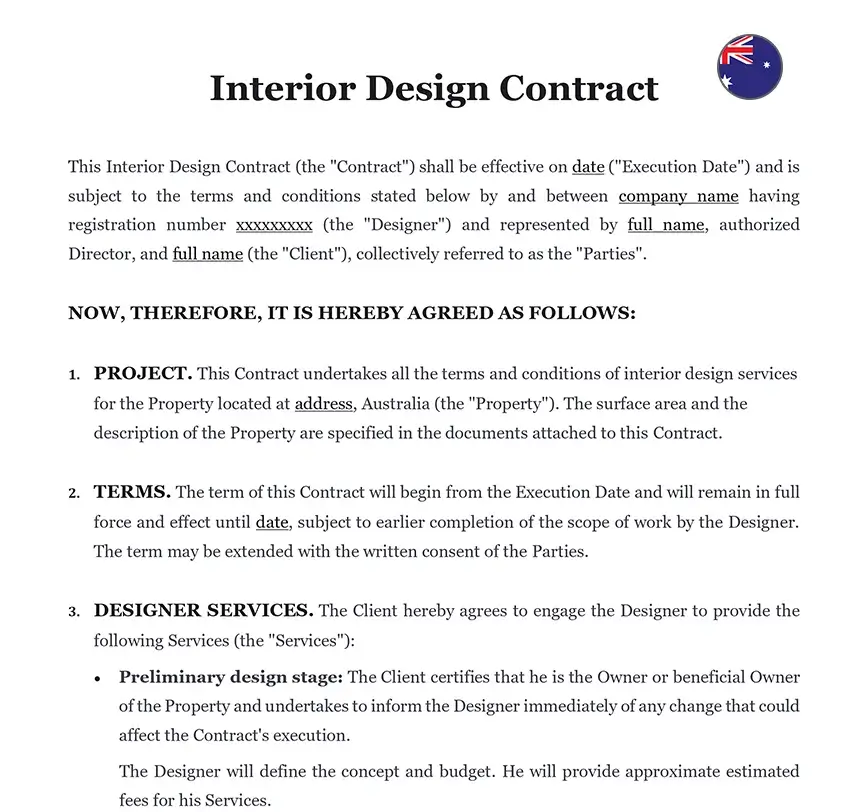The Importance of an Interior Design Contract
An interior design contract is essential for defining the terms and conditions of the relationship between the client and the home decor specialist. This contract ensures clarity, prevents disputes, and provides legal protection for both parties. This guide will outline key legal considerations and clauses to include when hiring a home decor specialist in Australia, emphasizing the importance of having a comprehensive interior design contract.
Defining the Scope of Work
The scope of work is a fundamental element of any interior design contract. It specifies the tasks and responsibilities of the home decor specialist.
1. Detailed Descriptions: Clearly outline the specific services to be provided, such as space planning, color consultation, furniture selection, and project management.
2. Inclusions and Exclusions: Specify what is included in the scope of work and what is not, to prevent misunderstandings and scope creep.
3. Milestones and Deliverables: Define key milestones and deliverables, such as mood boards, design presentations, and final installations.
Payment Terms and Schedules
Payment terms and schedules are crucial for ensuring that the home decor specialist is compensated fairly and that the client understands the payment obligations.
1. Fee Structure: Clearly define the fee structure, whether it is a flat fee, hourly rate, or a percentage of the project cost. Include any retainer fees or initial deposits.
2. Payment Schedule: Establish a payment schedule that outlines when payments are due, such as upon signing the contract, at key project milestones, and upon project completion.
3. Additional Costs: Specify any additional costs that may arise, such as expenses for materials, subcontractors, or travel. Ensure these are outlined clearly to avoid disputes.
Project Timeline
A well-defined project timeline helps to keep the project on track and ensures that both parties understand the expected completion dates.
1. Start and End Dates: Clearly state the project’s start and expected end dates, including deadlines for major milestones and deliverables.
2. Delays and Extensions: Include provisions for handling delays and extensions, specifying the conditions under which extensions may be granted and the process for requesting them.
Roles and Responsibilities
Defining the roles and responsibilities of both the client and the home decor specialist is essential for smooth project execution.
| ➤ Specialist's Responsibilities: Detail the specialist's responsibilities, including design, sourcing materials, coordinating with suppliers, and overseeing installations. |
| ➤ Client's Responsibilities: Specify the client's responsibilities, such as providing timely feedback, making payments, and ensuring access to the property. |
| ➤ Subcontractors and Suppliers: Address the roles and responsibilities of any subcontractors or suppliers involved in the project, ensuring their obligations are clear and agreed upon. |











